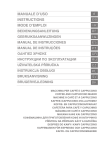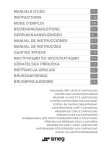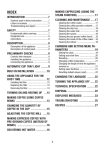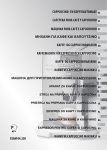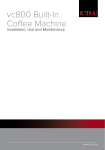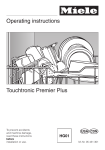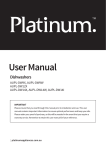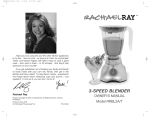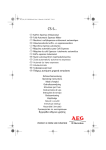Download Smeg CMS45X coffee maker
Transcript
MANUALE DʼUSO
INSTRUCTIONS
MODE DʼEMPLOI
BEDIENUNGSANLEITUNG
GEBRUIKSAANWIJZINGEN
MANUAL DE INSTRUCCIONES
MANUAL DE INSTRUÇÕES
ΟΔΗΓΙΕΣ ΧΡΗΣΗΣ
ИНСТРУКЦИИ ПО ЭКСПЛУАТАЦИИ
UŽIVATELSKÁ PŘÍRUČKA
INSTRUKCJA OBSŁUGI
BRUKSANVISNING
BRUGERVEJLEDNING
MACCHINA PER CAFFÈ E CAPPUCCINO
COFFEE AND CAPPUCCINO MAKER
MACHINE À CAFÉ ET À CAPPUCCINO
KAFFEE-/CAPPUCCINO-VOLLAUTOMAT
KOFFIE- EN CAPPUCCINOAPPARAAT
CAFETERA PARA CAFÉ Y CAPUCHINO
MÁQUINA DE CAFÉ E CAPPUCCINO
ΜΗΧΑΝΗ ΚΑΦΕ ΚΑΙ CAPPUCCINO
КОФЕМАШИНА ДЛЯ ПРИГОТОВЛЕНИЯ КОФЕ И КАПУЧЧИНО
PŘÍSTROJ NA PŘÍPRAVU KÁVY A KAPUČÍNA
EKSPRES DO KAWY I KAWY CAPPUCCINO
KAFFEMASKIN FÖR ESPRESSO OCH CAPPUCCINO
KAFFE- OG CAPPUCCINOMASKINE
A7
A
A4
A3
A6
A8
A9
A5
A10
A2
A18 A13
A14
A1
A12
A19
A15
A20
A16
A17
A21
A22
A25
A23
A24
B1
B
A7
A9
B6 B7
B8
B9
B2
B3
B4
B5
A11
2
1
1
2
3
4
5
6
7
8
9
10
11
12
13
14
15
16
1
2
17
18
19
20
21
22
23
24
12
1
2
3
4
5
6
7
8
9
10
11
12
1
25
26
27
28
INDEX
MAKING CAPPUCCINO (USING THE
STEAM FUNCTION) ...................17
INTRODUCTION .........................7
CLEANING AND MAINTENANCE .....17
Symbols used in these instructions ..........7
Letters in brackets .....................................7
Troubleshooting and repairs ......................7
Cleaning the coffee maker .......................17
Cleaning the coffee grounds container .....17
Cleaning the drip tray ...............................18
Cleaning the water tank ...........................18
Cleaning the spouts .................................18
Cleaning the pre-ground coffee funnel .....18
Cleaning the inside of the coffee maker....18
Cleaning the infuser ................................18
SAFETY ...................................7
Fundamental safety warnings ....................7
Designated use...........................................8
Instructions ...............................................8
DESCRIPTION............................8
Description of the appliance .....................8
Description of control panel .......................8
CHANGING AND SETTING MENU PARAMETERS .............................19
PRELIMINARY CHECKS ................9
Setting the clock ......................................19
Setting auto-start time .............................20
Descaling .................................................20
Changing coffee temperature ...................21
Changing the length of time the appliance
remains on ..............................................21
Setting water hardness ............................21
Resetting default values (reset) ...............22
Controls after transport .............................9
Installing the appliance...............................9
Connecting the appliance ...........................9
AUTOMATIC CUP TRAY LIGHT ........9
BUILT-IN INSTALLATION .............10
USING THE APPLIANCE FOR THE
FIRST TIME ............................12
CHANGING THE LANGUAGE .........22
Installing the filter ...................................12
Replacing the filter ..................................13
Removing the filter ..................................13
TECHNICAL SPECIFICATION .........22
TURNING THE APPLIANCE OFF .....22
DISPOSAL ..............................22
TURNING ON AND HEATING UP ...13
DISPLAYED MESSAGES .............23
MAKING COFFEE USING COFFEE
BEANS ..................................13
TROUBLESHOOTING .................25
RECIPES ................................27
CHANGING THE QUANTITY OF
COFFEE IN THE CUP .................15
ADJUSTING THE COFFEE MILL ....15
MAKING ESPRESSO COFFEE WITH
PRE-GROUND COFFEE (INSTEAD OF
BEANS) ................................16
DELIVERING HOT WATER ............16
6
If repairs are required, contact Customer Services only.
The addresses are given in the guarantee certificate provided with the machine.
INTRODUCTION
Thank you for choosing the automatic coffee and
cappuccino maker.
We hope you enjoy using your new appliance.
Take a few minutes to read these instructions.
This will avoid all risks and damage to the machine.
SAFETY
Fundamental safety warnings
Symbols used in these
instructions
Important! The appliance is designed and
produced for domestic use only.
Important warnings are identified by these symbols.
These warnings must absolutely be respected.
Failure to observe the instructions could result in
electric shock, serious injury, burns, fire or damage to the appliance.
Danger! This is an electrical appliance
and may cause electric shock.
You should therefore respect the following safety
warnings:
• Never touch the appliance with damp hands.
• Never touch the plug with damp hands.
• Make sure the socket used is freely accessible at all times, enabling the appliance to be
unplugged when necessary.
• If the appliance is faulty, do not attempt to repair.
Turn it off using the main switch (A23), unplug from the mains socket and contact Customer Services.
• If the plug or power cable is damaged, it
must be replaced by customer services only
to avoid all risk.
Danger!
Failure to observe the warning could result in
possibly life threatening injury from electric
shock.
Important!
Failure to observe the warning could result in injury or damage to the appliance.
Danger of burns!
Failure to observe the warning could result in
scalds or burns.
Important! Keep all packaging (plastic
bags, polystyrene foam) away from children.
N.B.!
This symbol identifies important advice or information for the user.
Troubleshooting and repairs
Important! The appliance is not intended
for use by persons (including children) with reduced physical, sensory or mental capabilities, or lack
of experience and knowledge, unless they have
been given supervision or instruction concerning
use of the appliance by a person responsible for
their safety. Children must be supervised to ensure
they do not play with the appliance.
If this does not resolve the problem or you require further information, you should consult Customer Services by calling the number given on
the "Customer Service" sheet.
If your country is not among those listed on the
sheet, call the number given in the guarantee.
Danger of burns! This appliance produces hot water and steam may form while it is in
operation. Avoid contact with splashes of water
or hot steam. Avoid touching hot surfaces when
the appliance is in use. Use knobs and handles.
Letters in brackets
The letters in brackets refer to the legend in the
Description of the Appliance on page 3.
7
DESCRIPTION
Important! Do not grasp the coffee maker
when it is out of the cabinet. Do not rest recipients containing liquids or inflammable or corrosive materials on top of the appliance. Place the
accessories required to prepare the coffee (the
measure for example) in the special holder. Do
not rest large objects which could obstruct movement or unstable objects on the appliance.
Description of the appliance
(page 3 - A)
A1. Cup tray
A2. Service door
A3. Coffee guide
A4. Coffee grounds container
A5. Infuser
A6. Lights
A7. ON-OFF/stand-by knob (*)
A8. Control panel
A9. Steam knob (*)
A10. Cappuccino maker (removable)
A11. Cappuccino maker nozzle
A12. Water tank
A13. Coffee spout (adjustable height)
A14. Drip tray
A15. Beans container lid
A16. Beans container
A17. Grinding adjustment knob
A18. Pre-ground coffee funnel door
A19. Measure
A20. Compartment for measure
A21. Pre-ground coffee funnel
A22. Power cable
A23. Main switch
A24. Tray
A25. Water softener filter (if present)
(*) illuminated in certain models
Important! Never make drinks, hot water
or steam when the appliance is extracted. Always
make sure the appliance is inactive before extracting it. Failure to observe this precaution
could lead to damage to the appliance. The only
exception is adjusting the coffee mill which must
be done with the machine out (see the section
"Adjusting the coffee mill").
N.B.: Use original or manufacturer recommended accessories and spare parts only.
Designated use
This appliance is designed and made to prepare
coffee and heat drinks. All other use is considered improper. This appliance is not suitable for
commercial use. The manufacturer is not liable
for damage deriving from improper use of the appliance. This appliance can be installed in combination with a built-in oven if the latter is fitted
with a cooling fan at the rear (maximum oven
power: 3 kW).
Description of control panel
(page 3 - B)
A number of buttons on the panel have a double
function. This is indicated in brackets in the description.
B1. Display: guides the user in using the
appliance.
B2. Coffee taste button
.
B3. One/two cups short coffee button
.
B4. One/two cups standard coffee button
.
B5. One/two cups long coffee button
.
B6. Menu button to activate or deactivate
menu parameter setting mode
B7. Pre-ground coffee button
.
(When you access the MENU: NEXT
Instructions
Read these instructions carefully before using the
appliance.
• Keep these instructions. If the appliance is
passed to other persons, they must also be
provided with these instructions.
• Failure to follow these instructions may result in burns or damage to the appliance.
The manufacturer is not liable for damage
deriving from failure to respect these instructions.
8
button to display the next menu
parameter).
B8. Rinse button
: performs a brief rinse
to heat the infuser.
(When you access the MENU: "CHANGE"
button to modify menu parameters).
B9.
button: to deliver hot water or confirm.
(When you access the MENU: OK button
to confirm menu parameters).
If the power socket does not match the plug on
the appliance, have the socket replaced with a
suitable type by a qualified professional.
To comply with safety directives, an omnipolar
switch with a minimum contact distance of 3 mm
must be installed.
Do not use multiple sockets or extensions.
To learn to use the appliance correctly, the first
time you use it follow the detailed instructions in
the following paragraphs.
PRELIMINARY CHECKS
Important! Safety cutout devices must be
included in the mains power supply in compliance
with the installation regulations in the country concerned.
Controls after transport
After removing the packaging, make sure the product is complete and undamaged and that all accessories are present. Do not use the appliance if
it is visibly damaged. Contact Customer Services.
AUTOMATIC CUP TRAY LIGHT
When the appliance is turned on, the lights (A6)
automatically illuminate the spout and cup tray.
In some models the knobs are also illuminated.
The lights stay on until the appliance is turned
off. While coffee, steam or hot water is being delivered, the cooling fan comes on.
At the end of the function, the cooling fan remains on to avoid condensation forming inside
the cabinet. After several minutes, the fan goes
off automatically.
Installing the appliance
Important! When installing the appliance, respect the following safety warnings:
• Installation must be performed by a qualified
professional in compliance with legislation in
force in the country of installation (see Builtin installation).
• The packing elements (plastic bags, polystyrene foam, etc.) should be kept out of reach
of children as they are a safety hazard.
• Do not install the appliance in rooms where
the temperature may drop to 0°C or lower
(the water in the appliance could freeze and
cause damage).
• You should customise the water hardness as
soon as possible following the instructions
in the "SETTING WATER HARDNESS" chapter.
N.B.: The appliance completes this cycle
even if switched off by turning the knob
(A7) to the left or right.
Important! Do not look at the lights directly or using an optical instrument.
Connecting the appliance
Danger! Check that the mains power
supply voltage corresponds to the value indicated
on the appliance rating plate.
Connect the appliance to an efficiently earthed
and correctly installed socket with a minimum
current rating of 10A only.
9
BUILT-IN INSTALLATION
22
mm
455 mm
Verify the minimum measurements required for
correct installation of the appliance.
The coffee maker must be installed in a column
and the column must be firmly fixed to the wall
with commercially available brackets.
Important:
m
m
15 m
372 mm
•
595 m
528 m
m
361
mm
m
45 m
45 mm
m
45 m
45 mm
450
•
Important: all installation or maintenance
operations must be performed with the appliance disconnected from the mains electricity supply.
Kitchen furniture in direct contact with the
appliance must be heat resistant (65°C min).
To guarantee correct ventilation, leave a gap
at the bottom of the cabinet (see measurements in figure).
m
560 m
500
m
mm
45 m
in
550
850 mm
•
45 mm
M
mm
m
45 m
45 mm
200 cm2
10
200 cm2
x 16
with legislation.
Electrical connections must be performed by a
qualified electrician in compliance with the
manufacturer's instructions and legislation in
force in the country of installation.
The mains socket should be easily accessible.
x2
x4
Position the rails on the sides of the cabinet as
shown in the figure.
Fix with the screws, then extract completely.
If the coffee maker is installed over a warmer
drawer (500 W max.), use the top surface of this
as a reference to position the rails.
In this case, there will be no surface to rest the
rails on.
Position the appliance on the rails, making sure
the pins are correctly inserted in the housings,
then fix it with the screws supplied.
x1
x4
560 +
1 mm
m
350m
pprox.
a
Fix the power cable with the clip to avoid it
tangling when the appliance is inserted or
extracted.
The power cable must be long enough to allow
the appliance to be extracted from the cabinet
to fill the coffee beans container.
The appliance must be earthed in compliance
If necessary, correct alignment of the appliance
by positioning the spacers supplied under or at
the sides of the support.
11
USING THE APPLIANCE FOR
THE FIRST TIME
•
•
1.
2.
3.
4.
5.
6.
Important! To prevent malfunction, never
introduce pre-ground coffee, freeze dried coffee,
caramelised beans or anything else which could
damage the appliance.
Coffee has been used to factory test the appliance and it is therefore completely normal
for there to be traces of coffee in the mill.
The machine is, however, guaranteed to be
new.
You should customise water hardness as
soon as possible following the instructions
in the "Setting water hardness" chapter.
Connect the appliance to the mains electricity supply and press the main switch (A23).
You must select the required language:
To set English, wait for the appliance to display "PRESS OK TO INSTALL ENGLISH".
While the message is displayed, press the OK
button (B9) (fig. 1) for at least 3 seconds
until "ENGLISH INSTALLED" is displayed.
The appliance then displays the setting confirmed message in English.
If you set the wrong language by mistake,
follow the instructions in the chapter "Changing the language" to choose the right language.
Follow the instructions indicated by the appliance:
After 5 seconds, the appliance displays "FILL
TANK". To fill the water tank, remove (fig. 2),
rinse and fill with fresh water without exceeding the MAX line.
Replace the tank and push as far as it will go.
Place a cup under the cappuccino maker (fig.
3).
The appliance now displays: "HOT WATER
PRESS OK".
Press the OK button (B9) (fig. 1) and after a
few seconds a little water comes out of the
cappuccino maker. (Delivery stops automatically).
The machine now displays "TURNING OFF...
PLEASE WAIT" and goes off.
Extract the appliance by pulling it out using
the handles (fig. 4). Open the lid and fill the
container with coffee beans, then close the
lid and push the appliance in.
The coffee maker is now ready for normal use.
N.B.! When using the appliance for the
first time, you need to make 4/5 cups of coffee
and 4/5 cappuccinos before the appliance starts
to give satisfactory results.
N.B.! Each time the coffee maker is turned on by using the main switch (A23), the appliance performs a "SELF-DIAGNOSIS" cycle and
then goes off. To turn it on again, turn the knob
(A7) (to the right or left) (fig. 5).
Installing the filter
Some models are fitted with a water softener filter
to improve the quality of the water used and extend the working life of the appliance.
To install, proceed as follows:
1. Remove the filter from the packaging (A25).
2. Slide the pointer of the date indicator (see fig.
28) until the months of use are displayed.
N.B.: The filter lasts about 2 months if the
appliance is used normally. If the coffee maker
is left unused with the filter installed, it will last
a maximum of 3 weeks.
3. Insert the filter in the water tank (A12) and
press it until it touches the bottom of the tank
(see fig. 28).
4. Fill the tank and place in the coffee maker.
5. Turn the cappuccino maker (A10) outwards
and place a container underneath (min. capacity 100 ml).
N.B.: When you install the filter, you must
notify the appliance of its presence.
6. Press the MENU button (B6) to enter the
menu;
7. Press the NEXT button (B7) until "INSTALL
FILTER" is displayed.
8. Press the OK button (B9).
12
9. "HOT WATER PRESS OK" is displayed.
10. Press the OK button (B9)
The appliance begins delivering hot water
and the message "PLEASE WAIT... " is displayed.
After the flow of hot water stops, the appliance automatically resets to "READY" status.
1. Press the MENU button (B6) to enter the menu.
2. Press the NEXT button (B7) until "UNINSTALL
FILTER" is displayed.
3. Press the OK button (B9). The appliance automatically resets to "READY" status.
Replacing the filter ("Filter
Reset")
Each time the appliance is turned on, it performs
an automatic preheat and rinse cycle which cannot be interrupted.
The appliance is ready for use only after completion of this cycle.
TURNING ON AND HEATING
UP
When "REPLACE FILTER" is displayed or after 2
months of use (see date indicator), the filter must
be replaced:
1. Remove the exhausted filter;
2. Remove the new filter from the packaging.
3. Slide the pointer of the date indicator (see fig.
28) until the months of use are displayed (the
filter lasts about 2 months).
4. Insert the filter in the water tank and press it
until it touches the bottom of the tank (see
fig. 28).
5. Fill the water tank and insert in the coffee
maker;
6. Turn the cappuccino maker outwards and
place a container underneath (min. capacity
100 ml).
7. Press the MENU button (B6) to enter the
menu;
8. Press the NEXT button (B7) until "FILTER
RESET NO" is displayed.
9. Press the CHANGE button (B8) until "FILTER
RESET YES" is displayed.
10. Press the OK button (B9) to confirm.
11. "HOT WATER PRESS OK" is displayed.
12. Press the OK button (B9) again. The appliance begins delivering hot water and the
message "PLEASE WAIT... " is displayed.
After the flow of hot water stops, the appliance automatically resets to "READY" status.
Danger of burns! During rinsing, a little
hot water flows from the coffee spouts.
Avoid contact with splashes of water.
To turn the appliance on, turn the knob
(A7)
(to the right or left) (fig. 5). "HEATING UP...
PLEASE WAIT" is displayed.
After heating, the message "RINSING" is displayed. As well as heating the boiler, the appliance
also heats the internal circuits by circulating hot
water.
The appliance is at temperature when the message "READY STANDARD TASTE" is displayed.
MAKING COFFEE USING
COFFEE BEANS
1. The appliance is preset to make coffee with a
standard taste. You can also choose coffee
with an extra-light, light, strong or extrastrong taste.
To choose the required taste, press the
button (B2) (fig. 6). The required coffee taste
is displayed.
2. Place 1 cup under the spouts to make 1 coffee (fig. 7) or 2 cups for 2 coffees (fig. 8).
Lower the spouts as near as possible to the
cup for a creamier coffee (fig. 9).
3. Press the
button (B3) to make a short
coffee (fig. 10), the
button (B4) for a
standard coffee and the
button (B5) for
Removing the filter
If you want to use the appliance without a filter,
you must remove it and notify the appliance of
its removal as follows:
13
a long coffee. To make 2 coffees, press the
button twice (within 2 seconds).
To change the quantity of coffee the appliance delivers automatically into the cup,
proceed as described in the following chapter. (The appliance now grinds the beans and
starts delivering the coffee into the cup.
Once the set amount of coffee has been delivered, the machine stops delivery automatically and expels the exhausted coffee
grounds into the grounds container.
4. After a few seconds, the ready message is displayed again and you can make another coffee.
5. To turn the appliance off, turn the knob
(A7) (to the right or left) (fig. 5).
Before going off, the appliance performs an
automatic rinse cycle (a little hot water flows
from the spouts and is collected in the drip
tray beneath. Take care to avoid scalds).
NOTE 1: If the coffee is delivered a drop at a time
or not at all, turn the grinding adjustment knob
(A17) (fig. 11) one click clockwise (see "Adjusting
the coffee mill").
Proceed one click at a time until coffee delivery is
satisfactory.
NOTE 2: If the coffee is delivered too fast and the
cream is not satisfactory, turn the grinding adjustment knob (A17) (fig. 11) one click anticlockwise (see "Adjusting the coffee mill").
Avoid turning the grinding adjustment knob excessively otherwise when you select 2 cups, the
coffee may be delivered a drop at a time.
NOTE 3: Tips for a hotter coffee:
• When you turn the appliance on, if you want
to make a short coffee (less than 60 cc),
rinse the cups with hot water to preheat the
cups.
If more than 2/3 minutes have passed since
the last coffee made, before requesting another coffee, you must preheat the infuser by
pressing the
button (B8) (fig. 12).
Deliver the water into the underlying drip tray
or alternatively use this water to fill (and then
empty) the cup to be used for the coffee, so
as to preheat it.
• Unless preheated, do not use excessively
thick cups as they will absorb too much heat.
Preheat the cups by rinsing them with hot
water.
NOTE 4: While the appliance is making coffee, delivery can be interrupted at any moment by pressing the previously selected button,
(B3),
(B4) or
(B5).
NOTE 5: As soon as delivery is finished, to increase the quantity of coffee in the cup, just hold
down the previously selected coffee button ( ,
or
) until the required amount is reached
(this must be done within 3 seconds after completion of delivery).
NOTE 6: When the appliance displays "FILL
TANK", fill the tank with water or the appliance
will not deliver coffee.
(It is normal for there to be a little water left in
the tank when the message is displayed).
NOTE 7: After about 14 single (or 7 double) coffees, the appliance displays "EMPTY GROUNDS
CONTAINER", indicating that the grounds container is full and must be emptied and cleaned. Until
the grounds container has been cleaned, the appliance continues to display the message and
coffee cannot be made.
To clean, open the service door on the front of
the appliance by pulling the spout (A13) (fig. 13),
extract the drip tray (A14) (fig. 14), empty and
clean.
•
When cleaning, always extract the drip tray
completely to avoid it falling when the grounds
container is removed.
Empty the grounds container and clean thoroughly to remove all residues left on the bottom.
14
coffee correctly and should not require adjusting
initially.
However, if after making the first few coffees you
find that delivery is either too fast or too slow (a
drop at a time), this can be corrected by adjusting
the grinding adjustment knob (fig. A17) (fig. 11).
Important! when removing the drip tray,
the grounds container must be emptied, even if it
is not completely full. If this is not done, when
you make the next coffees, the grounds container
may fill up more than expected and clog the machine.
Important! The grinding adjustment knob
must only be turned when the coffee mill is in
operation.
For slower delivery and
creamier coffee, turn one
click anticlockwise (finer
pre-ground coffee).
For faster delivery (not a
drop at a time), turn one
click clockwise (coarser
pre-ground coffee).
(Coffee has been used to
factory test the appliance
and it is therefore completely normal for there to
be traces of coffee in the mill.
It is, however, guaranteed to be new.)
NOTE 8: Never extract the water tank while the
machine is delivering coffee.
If it is removed, it will not be possible to make
the coffee and the appliance will display
"GROUND TOO FINE ADJUST MILL AND PRESS
OK". To use the appliance again, replace the water
tank, press the OK button (B9). "HOT WATER
PRESS OK" is displayed. Press the OK button
(B9) and deliver water from the cappuccino
maker for a few seconds.
CHANGING THE QUANTITY
OF COFFEE IN THE CUP
The appliance is set by default to automatically
make the following types of coffee:
• Short coffee when the
button (B3) is
pressed.
• Standard coffee when the
button (B4) is
pressed.
• Long coffee when the
button (B5) is
pressed. To change these quantities, proceed
as follows:
• Press the button corresponding to the quantity you want to change (
,
or ) for
at least 10 seconds then release until the
message "PROGRAM QUANTITY" is displayed and coffee delivery commences.
• When the coffee in the cup reaches the required level, press the same button again to
memorise the new amount.
The appliance is now reprogrammed with the
new settings and displays: "READY".
MAKING ESPRESSO
COFFEE WITH PREGROUND COFFEE (INSTEAD
OF BEANS)
•
•
•
ADJUSTING THE COFFEE
MILL
•
The coffee mill is preset in the factory to make
15
Press the
button (B7) (fig. 15) to select the pre-ground coffee function. This disables the coffee mill function.
The appliance now displays the message:
"READY PRE-GROUND".
Extract the machine by pulling it outwards
using the handles.
Lift the central lid, place one measure of preground coffee in the funnel (fig. 16), push the
appliance in then proceed as described in the
chapter "Making coffee using coffee beans".
N.B.: You can make just one coffee at a time
by pressing the
(B3),
(B4) or
(B5)
button once only.
After using the machine with pre-ground coffee, to go back to making coffee using beans,
deactivate the pre-ground coffee function by
pressing the
button (B2) (fig. 6) again
to enable the coffee mill.
NOTE 1: Never introduce pre-ground coffee when
the machine is off or before pressing the
button (B7) to avoid the coffee spreading through
the inside of the appliance.
NOTE 2: Never add more than 1 level measure,
otherwise either the appliance will not make the
coffee and the pre-ground coffee will be dispersed inside the appliance, dirtying it, or the coffee
will be delivered a drop at a time.
NOTE 3: Use the measure provided to add the
right amount of coffee.
NOTE 4: Introduce only pre-ground coffee for
espresso coffee machines into the funnel. Never
fill with coffee beans, freeze dried coffee or other
substance that could damage the appliance.
NOTE 5: If more than one measure of pre-ground
coffee is used and the funnel clogs, push the coffee down with a knife (fig. 17) then remove and
clean the infuser and machine as described in the
"Cleaning the infuser" chapter.
MAKING CAPPUCCINO
(USING THE STEAM
FUNCTION)
•
•
•
•
•
•
DELIVERING HOT WATER
The appliance is set by default to automatically
deliver 200 ml of hot water.
• Always make sure the appliance is ready.
• Turn the cappuccino maker outwards and
place a container underneath (fig. 3).
• Press the
button (B9) (fig. 1).
"HOT WATER PRESS OK" is displayed.
• Press the OK button and hot water is delivered from the cappuccino maker into the container underneath.
(You should not deliver hot water for more
than 2 minutes at a time).
To interrupt the flow, press the
button
(B9).
Once the set quantity of hot water has been
reached, delivery stops automatically.
•
•
•
16
Turn the cappuccino maker (A10) towards
the centre (fig. 3).
Take a container, fill it with about 100 ml of
milk for each cappuccino to be made and
place it under the cappuccino maker.
In choosing the size of the recipient, bear in
mind that the milk doubles or triples in volume.
You are recommended to use partially skimmed milk at refrigerator temperature.
Turn the steam knob
(A9) (fig. 18) (to
the right or left). "STEAM PRESS OK" is displayed.
Press the OK button (B9) (fig. 1).
To stop steam delivery, turn the steam knob
(A9).
Immerse the cappuccino maker (A10) in the
milk container (fig. 19), taking care not to immerse the raised line on the cappuccino
maker (shown by the arrow in fig. 19).
Steam comes out of the cappuccino maker
giving the milk a creamy frothy appearance.
For a creamier froth, immerse the cappuccino maker in the milk and rotate the container with slow upward movements.
(You should not discharge steam for more
than 2 minutes at a time).
Once the required froth has been reached,
stop steam discharge by turning the steam
knob
(A9).
Prepare the coffee as described above using
sufficiently large cups, then fill them with the
frothed milk prepared previously.
The cappuccino is ready.
Sweeten to taste and if desired, sprinkle the
froth with a little cocoa powder.
IMPORTANT: always clean the cappuccino
system immediately after use.
Proceed as follows:
Turn the steam knob
(A9) and press
the OK button (B9) to discharge a small
amount of steam for a few seconds.
•
•
•
•
•
•
This empties the cappuccino maker of all traces of milk.
IMPORTANT: to ensure the hygiene of the appliance, you are recommended to carry out
this procedure each time you make cappuccino to avoid stale milk remaining in the circuit.
Wait a few minutes for the cappuccino maker
to cool down, then holding the cappuccino
maker lever firmly in one hand, unscrew the
cappuccino maker itself with the other, turning it clockwise and removing it downwards
(fig. 20).
Remove the cappuccino maker nozzle (A11)
by pulling it downwards (fig. 21).
Wash the cappuccino maker and nozzle thoroughly in hot water.
Make sure the two holes shown in figure 22
are not blocked.
If necessary, clean with a pin.
Replace the nozzle by inserting it and rotating it vigorously upwards into the cappuccino maker.
Replace the cappuccino maker by pushing it
upwards and rotating it anticlockwise.
•
•
•
(A10).
Pre-ground coffee funnel (A21).
Inside the machine, accessible after opening
the service door (A2).
Infuser (A5).
Cleaning the coffee grounds
container
When "EMPTY GROUNDS CONTAINER" is displayed, the grounds container must be emptied
and cleaned.
Until the grounds container has been cleaned, the
appliance continues to display the message and
coffee cannot be made.
To clean:
• Open the service door (A2) on the front of the
appliance (fig. 13), extract the drip tray (A14)
(fig. 14), empty and clean.
• Empty the grounds container and clean thoroughly to remove all residues left on the bottom.
Important! If the drip tray is not emptied
regularly, the water could overflow from the edge
and seep inside or around the coffee maker.
This could damage the appliance and cabinet.
The drip tray is fitted with a level indicator (red)
showing the level of water it contains (fig. 24).
Before the indicator protrudes from the cup tray,
the drip tray must be emptied and cleaned.
CLEANING AND
MAINTENANCE
Before performing any cleaning operations, leave
the machine to cool down completely and unplug
from the mains power supply. Never immerse the
coffee maker in water. It is an electrical appliance.
Do not use solvents or abrasive detergents to
clean the coffee maker. A soft damp cloth will suffice. Never wash any of the components of the
coffee maker in the dishwasher.
Cleaning the drip tray
Important! If the drip tray is not emptied
regularly, the water could overflow from the edge
and seep inside or around the coffee maker.
This could damage the appliance and cabinet.
Cleaning the coffee maker
The drip tray is fitted with a level indicator (red)
showing the level of water it contains (fig. 24).
Before the indicator protrudes from the cup tray,
the drip tray must be emptied and cleaned.
To remove the tray:
1. Open the service door (A2) (fig. 13).
2. Remove the drip tray (A14) and the grounds
container (A4) (fig. A14).
The following parts of the machine must be cleaned regularly:
• Coffee grounds container (A4).
• Drip tray (A14).
• Water tank (A12).
• Coffee spouts (A13), cappuccino maker nozzle (A11) and cappuccino maker spouts
17
month.
3. Empty the drip tray and grounds container
(A4) and wash them;
4. Remove the drip tray complete with grounds
container (A4).
5. Close the service door.
Important! The infuser (A5) must not be
removed when the appliance is on. Do not attempt to use force to remove the infuser as this
could damage the coffee maker.
Cleaning the water tank
1. Make sure the machine is correctly turned off
(see "Turning the appliance off").
2. Open the service door (A2) (fig. 13).
3. Remove the drip tray (A14) and the grounds
container (fig. 14);
4. Press the two red release buttons inwards
and at the same time pull the infuser outwards (fig. 27).
1. Clean the water tank (A12) regularly (about
once a month) with a damp cloth and a little
mild washing up liquid.
2. Clean to remove all washing up liquid residues, then rinse the water tank thoroughly.
Cleaning the spouts
1. Clean the spouts (A13) periodically using a
sponge or cloth (fig. 25).
2. Check regularly that the holes in the coffee
spout are not blocked.
If necessary, remove coffee deposits with a
toothpick (fig. 23).
Important! Do not use washing up liquid
to clean the infuser. It would remove the lubricant applied to the inside of the piston, causing
the infuser to seize up and become unusable. Do
not put in the dishwasher.
Cleaning the pre-ground coffee funnel
•
5. Soak the infuser in water for about 5 minutes, then rinse under the tap.
6. After cleaning, replace the infuser (A5) by sliding it onto the internal support and pin at
the bottom,
Check regularly (about once a month ) that
the pre-ground coffee funnel (A21) is not
blocked.
If necessary, remove coffee deposits with a
knife (fig. 17).
Support
Danger! Before performing any cleaning
operations, the machine must be turned off by
pressing the main switch (A23) and unplugged
from the mains power supply.
Never immerse the coffee maker in water.
Cleaning the inside of the coffee
maker
Pin
1. Check regularly (about once a week) that the
inside of the appliance is not dirty.
If necessary, remove coffee deposits with a
knife and a sponge.
2. Remove the residues with a vacuum cleaner
(fig. 26).
then push the PUSH symbol fully in until it
clicks into place.
N.B.! If the infuser is difficult to insert,
you must first adapt it to the right dimension by
pressing it forcefully from the bottom and top as
shown in the figure.
Cleaning the infuser
The infuser (A5) must be cleaned at least once a
18
mode or NEXT to change other parameters.
If auto-start is set, when the appliance is in
stand-by, press any button to display the
auto-start symbol for 5 seconds.
Setting auto-start time
7. Once inserted, make
sure the two red buttons have snapped out.
8. Replace the drip tray
(A14) and grounds container.
9. Close the service door
(A2).
This function programmes the time the machine
will come on automatically to be ready for use.
• Make sure the clock on the appliance is set as
described in the previous chapter.
• Press the MENU button (B6) (the light over
the button comes on) then press the NEXT
button (B7) repeatedly until the appliance displays: "START TIME… 00:00".
• Press the CHANGE button (B8) to set the
auto-start time.
(If you hold the CHANGE button down, the
time is changed rapidly).
• Press the OK button (B9) to confirm.
• Press NEXT once and the appliance displays
the message: "AUTO-START NO".
Press the CHANGE button to modify the function (the machine displays "AUTO-START
YES" ).
• Press the OK button to activate auto-start;
NOTE: when the machine is off and an autostart time has been set, the
symbol appears alongside the time on the unlit display.
• Press the MENU button to exit programming
mode or NEXT to change other parameters.
CHANGING AND SETTING
MENU PARAMETERS
After turning the
knob (A7) and waiting for
the appliance to be ready, you can use the internal menu to modify the following parameters and
functions:
• CLOCK
• START TIME7:30
• AUTO-START NO
• DESCALE NO
• TEMPERATURE MEDIUM
• OFF AFTER 1 HOUR
• WATER HARDNESS 4
• DEFAULT VALUES NO
• INSTALL/UNINSTALL FILTER
• FILTER RESET NO
• INSTALL FILTER/UNINSTALL FILTER (*)
• FILTER RESET
(*) (certain models only)
Descaling
Important! Before descaling, make sure
the water softener filter (if present) has been removed.
Setting the clock
To set the clock, proceed as follows:
• Press the MENU button (B6) then press the
NEXT button (B7) repeatedly until the appliance displays: "CLOCK… 00:00"
• Press the CHANGE button (B8) to set the
clock.
(If you hold the CHANGE button down, the
time is changed rapidly).
• Press the OK button (B9) to confirm.
• Press the MENU button to exit programming
Important! Descaler contains acids which
may irritate the skin and eyes.
It is vital to respect the manufacturer’s safety
warnings given on the descaler pack and the warnings relating to the procedure to follow in the
event of contact with the skin and eyes.
N.B.! Use the descaler recommended by
the manufacturer only.
19
Use of other descalers invalidates the guarantee.
Failure to descale the appliance as described also
invalidates the guarantee.
Over time, constant heating up of the water used
to make the coffee leads to limescale building up
in the inner circuits of the appliance.
When "DESCALE" is displayed, the machine requires descaling.
Proceed as follows:
• Make sure the appliance is ready for use and
the water softener filter (if present) has been
removed.
• Press the MENU button (B6) then press the
NEXT button (B7) repeatedly until the appliance displays "DESCALE NO".
• Press the CHANGE button (B8) and the appliance displays "DESCALE YES".
• Press the OK button (B9). The message "ADD
DESCALER PRESS OK" is displayed.
• Empty the water tank, pour the contents of
the descaler bottle into the tank respecting
the instructions given on the descaler pack,
then add water up to the MAX level marked
on the water tank.
When descaling subsequently, use descaler
of the same type and brand as supplied (available from the manufacturer's authorised Customer
Services)
or
a
descaler
recommended by Customer Services. Always
follow the instructions on the pack.
• Place a container with a minimum capacity
of 1.5 litres under the cappuccino maker (fig.
3).
• Press the OK button. Descaler flows out of
the cappuccino maker into the container
below. "APPLIANCE IN DESCALE" is displayed.
• The descale programme automatically performs a series of deliveries and pauses to remove limescale deposits from inside the
machine.
• After about 30 minutes, the appliance displays "RINSING FILL TANK".
The appliance must now be rinsed through
to eliminate residues of descaling solution
from inside the appliance. Proceed as follows:
•
•
•
•
•
•
•
Empty the water tank, rinse and fill with clean
water.
Replace the tank;
Empty the full container and put back under
the cappuccino maker.
Press the OK button. Hot water flows out of
the cappuccino maker spout into the container below and the appliance displays "RINSING".
When the water tank is empty, the appliance
displays the message "RINSING COMPLETE... PRESS OK".
Press the OK button and refill the water tank
with clean water.
The descale programme is now terminated
and the appliance is ready to make coffee
again.
NOTE: If descaling is interrupted before completion, the machine still displays the descaling message and the process must be begun
again from the beginning.
Empty the water tank, rinse with clean water
and deliver a cup of hot water.
Important! FAILURE TO DESCALE THE
APPLIANCE REGULARLY INVALIDATES THE
GUARANTEE.
Changing coffee temperature
To change coffee temperature, proceed as follows:
• Press the MENU button (B6), then press the
NEXT button (B7) repeatedly until the appliance displays "TEMPERATURE HIGH...".
• Press the CHANGE button (B8) until the appliance displays the required coffee temperature.
• Press the OK button (B9) to confirm.
• Press the MENU button to exit programming
mode or NEXT to change other parameters.
Changing the length of time the
appliance remains on (Energy
saving function)
The appliance is set by default to go off automatically 1 hour after the last coffee has been made.
20
To increase the number of hours the machine
stays on (max. 3), proceed as follows:
• Press the MENU button (B6) then press the
NEXT button (B7) repeatedly until the appliance displays: "OFF AFTER 1 HOUR".
• Press the CHANGE button (B8) to change the
number of hours the appliance remains on.
• Press the OK button (B9) to confirm.
• Press the MENU button to exit programming
mode or NEXT to change other parameters.
Table of water hardness levels
level
German
degrees
French
degrees
1 = soft
0-6 dH
0-11 fH
2 = soft/medium 7-13 dH
12-23 fH
3 = medium/hard 14-20 dH
24-36 fH
4 = hard
> 37 fH
> 21 dH
Resetting default values (reset)
If you change the original values, the default values can be reset as follows:
• Press the MENU button (B6) then press the
NEXT button (B7) repeatedly until the appliance displays RESET TO DEFAULT NO.
• Press the CHANGE button (B8) and the appliance displays "RESET TO DEFAULT YES".
• Press the OK button (B9) to reset the default
values.
• The appliance is now reset to the default settings and the "READY" message is displayed.
Setting water hardness
The descale message is displayed after the appliance has been operated for a factory set period of time calculated on the basis of the
maximum quantity of limescale which may be
contained in the water used.
The operating period can be extended if required,
making descaling less frequent by programming
the machine on the basis of the real lime content
in the water used.
Proceed as follows:
• Remove the "Total Hardness Test" strip (attached to page 2) from its packaging then dip
it fully in the water for a few seconds,
Then remove and wait about 30 seconds
(until it changes colour and forms red squares).
• Switch the machine on by turning the knob
(A7) (fig. 5).
• Press the MENU button (B6) then press the
NEXT button (B7) repeatedly until the appliance displays "WATER HARDNESS 4".
• Press the CHANGE button repeatedly until
the number coincides with the number of red
squares on the test strip (for example, if there
are 3 red squares on the test strip, press the
button until "WATER HARDNESS 3" is displayed).
• Press the OK button (B9) to confirm.
The coffee maker is now programmed to provide the descale warning when necessary
based on the actual hardness of the water.
CHANGING THE LANGUAGE
To change the language, press the CHANGE button for at least 5 seconds until the appliance displays the installation message in various
languages.
Select the required language as described in the
section "Using the appliance for the first time".
TURNING THE APPLIANCE
OFF
Each time the appliance is turned off, it performs
an automatic rinse cycle which cannot be interrupted.
Danger of burns! During rinsing, a little
hot water flows from the coffee spouts. Avoid
contact with splashes of water.
To turn the appliance off, turn the ON/OFF/standby knob (A7). The appliance performs the rinse
cycle then goes off.
NB! If the appliance is not used for an
21
extended period, place the main switch on the
back of the appliance in the 0 position (A23).
WARNING: Very carefully dispose of the cut
off plug after removing the fuse: do not insert in a 13 Amp socket elsewhere in the
house as this could cause a shock hazard.
With alternative plugs not incorporating a
fuse, the circuit must be protected by a 15
Amp fuse. If the plug is a moulded-on type,
the fuse cover must be re-fitted when changing the fuse using a 13 Amp Asta approved
fuse to BS 1362. In the event of losing the
fuse cover, the plug must NOT be used until a
replacement fuse cover can be obtained from
your nearest electrical dealer. The colour of
the correct replacement fuse cover is that as
marked on the base of the plug.
B) If your appliance is not fitted with a plug,
please follow the instructins provided below:
WARNING - THIS APPLIANCE MUST BE EARTHED
IMPORTANT
The wires in the mains lead are coloured in accordance with the following code:
Green and yellow: Earth
Blue:
Neutral
Brown:
Live
As the colours of the wires in the mains lead may
not correspond with the coloured markings identifying the terminals in your plug, proceed as follows:
The green and yellow wire must be connected to
the terminal in the plug marked with the letter E
or the earth symbol
or coloured green or
green and yellow.
The blue wire must be connected to the terminal
marked with the letter N or coloured black.
The brown wire must be connected to the terminal marked with the letter L or coloured red.
TECHNICAL SPECIFICATION
Voltage: 220-240 V~ 50/60 Hz max. 10A
Absorbed power: 1350 W
Pressure: 15 bars
Water tank capacity: 1.8 litres
Size LxHxD: 595x455x397 mm
Weight: 23 kg
The appliance complies with the following EC directives:
•
Low Voltage Directive 2006/95/EC and subsequent amendments.
• EMC Directive 2004/108/CE and subsequent
amendments.
Materials and accessories coming into contact
with food conform to EEC regulation 1935/2004.
DISPOSAL
Electrical appliances must not be disposed of as household waste.
Appliances with this symbol are covered
by European Directive 2002/96/EC.
All unused electric and electronic appliances
must be disposed of separately from household
waste by taking them to state authorised special
centres.
Disposing of the unused appliance correctly
avoids damage to the environment and a risk to
health.
For more information on disposing of the unused appliance, contact the local administration,
the waste disposal department or the shop where
the appliance was bought.
ELECTRICAL CONNECTION
(UK ONLY)
A) If your appliance comes fitted with a plug, it will
incorporate a 13 Amp fuse. If it does not fit your
socket, the plug should be cut off from the mains
lead, and an appropriate plug fitted, as below.
22
DISPLAYED MESSAGES
DISPLAYED MESSAGE
POSSIBLE CAUSE
REMEDY
FILL TANK
•
The water tank is empty or
positioned incorrectly.
•
Fill the tank with water
and/or insert it correctly,
pushing it as far as it will
go.
GROUND TOO FINE ADJUST
MILL alternating with PRESS
OK
•
The grinding is too fine
and the coffee is delivered
too slowly.
The machine cannot make
coffee as there is air in the
hydraulic circuit.
•
Turn the grinding adjustment knob one click
clockwise towards "7".
Press the OK button (B9)
and deliver water from the
cappuccino maker
•
•
EMPTY GROUNDS
CONTAINER
•
The grounds container
(A4) is too full or more
than 3 days have passed
since you last made coffee
(this guarantees correct
hygiene of the machine).
•
Empty the grounds container and clean, then replace.
Important: when removing the drip tray, the
grounds container MUST
be emptied, even if it is
not completely full.
If this is not done, when
you make the next coffees, the grounds container may fill up more than
expected and clog the machine.
INSERT GROUNDS CONTAINER
•
After
cleaning,
the
grounds container has not
been replaced.
•
Open the service door and
insert the grounds container.
ADD PRE-GROUND COFFEE
•
The "pre-ground coffee"
function has been selected without placing any
pre-ground coffee in the
funnel.
The funnel (A21) is blocked.
•
Extract the appliance and
place pre-ground coffee in
the funnel.
•
Empty the funnel with the
help of a knife as described in the section "Cleaning the pre-ground
coffee funnel".
•
23
DISPLAYED MESSAGE
POSSIBLE CAUSE
REMEDY
DESCALE
•
The machine must be descaled.
•
The descaling procedure
described in the "Descaling" section needs to be
performed as soon as
possible.
LESS COFFEE
•
Too much coffee has been
used.
•
Select a milder taste or reduce the quantity of preground coffee, then make
the coffee again.
FILL BEANS CONTAINER
•
The coffee beans have run
out.
•
Fill beans container
INSERT INFUSER ASSEMBLY
•
The infuser has not been
replaced after cleaning.
•
Insert the infuser as described in the chapter
"Cleaning the infuser".
CLOSE DOOR
•
The service door is open
•
Close the service door.
GENERAL ALARM
•
The inside of the appliance is very dirty.
•
Clean the inside of the appliance thoroughly, as described in the section
"Cleaning and maintenance". If the message is
still displayed after cleaning, contact a service
centre.
REPLACE FILTER!
•
The water softener filter
(A25) must be replaced.
•
You must immediately replace the filter following
the instructions in the
section "Replacing the filter".
24
TROUBLESHOOTING
Below is a list of some of the possible malfunctions.
If the problem cannot be resolved as described, contact Customer Services.
PROBLEM
The coffee is not hot.
The coffee is not creamy
enough.
The coffee is delivered too
slowly or a drop at a time.
POSSIBLE CAUSE
REMEDY
•
The cups were not preheated.
•
Warm the cups by rinsing
them with hot water.
•
The infuser has cooled
down because 2/3 minutes have elapsed since the
last coffee was made.
•
Before making coffee,
heat the infuser by pressing the
button (B8)
(fig. 12).).
•
The coffee is ground too
coarsely.
•
•
Wrong type of coffee
•
Turn the grinding adjustment knob one click anticlockwise towards "1"
while the coffee mill is in
operation (fig. 11).
Use a type of coffee for
espresso coffee makers.
•
The coffee is ground too
finely.
•
25
Turn the grinding adjustment knob one click anticlockwise towards "7"
while the coffee mill is in
operation (fig. 11).
Continue one click at a
time until coffee delivery
is satisfactory.
The effect is only visible
after delivering two coffees.
PROBLEM
POSSIBLE CAUSE
REMEDY
The coffee is delivered too
quickly.
•
The coffee is ground too
coarsely.
•
Turn the grinding adjustment knob one click anticlockwise towards "1"
while the coffee mill is in
operation (fig. 11).
Avoid turning the grinding
adjustment knob excessively otherwise when you
select 2 cups, the coffee
may be delivered a drop at
a time.
The effect is only visible
after delivering two coffees.
Coffee does not come out of
one of the spouts.
•
The spouts are blocked.
•
Clean the spouts with a
toothpick (fig. 23).
The coffee does not come
out of the spouts, but from
around the service door (A2).
•
The holes in the spouts
are clogged with dry coffee dust.
•
•
The coffee guide (A3) inside the service door is
blocked and cannot
swing.
•
If necessary, remove coffee deposits with a toothpick, sponge or stiff
bristled kitchen brush (fig.
23).
Thoroughly clean the coffee guide (A3), particularly near the hinges.
•
The pre-ground coffee
may be blocked in the funnel (A21).
•
Water comes out of the
spouts instead of coffee.
26
Clean the funnel (A21)
with a wooden or plastic
fork, clean the inside of
the machine.
RECIPES
Irish cofee
Coffee punch
Ingredients (serves 3):
2 spoons of sugar
1 spoon of water
9 teaspoons of whipping cream
6 spoon of Irish Whisky
4 cups of hot coffee
Method:
Boil the water and the sugar for approximately
one minute then add to the Whiskey and the hot
coffee. Mix and pour into stem glasses. Carefully
pour the cream onto the coffee (3 teaspoons per
glass).
RECIPE TIP: lightly whip the cream so that it
stays on top of the coffee. Grand Marnier or Calvados can also be added.
Ingredients (serves 6):
1/2 l of hot coffee
1/2 l of white Port
1/2 l of rum
100 g of candied brown sugar
Method:
Pour the coffee into a pot, add the rum and the
Port and heat until it reaches boiling point. Gradually add the candied sugar, tasting now and
then until sufficiently sweet. When the sugar has
dissolved serve in traditional, short stemmed
glasses.
Emperor’s coffee
Ingredients (serves 3):
3 espresso coffees
3 egg yolks
3 teaspoons of sugar
3 dl of milk
2 small glasses of brandy
Method:
Beat the egg yolks with the sugar and the brandy.
Add hot milk and hot coffee.
RECIPE TIP: lightly whip the milk and add slowly
at the very last ingredient. Best served accompanied by a chocolate cake.
Coffee sorbet
Ingredients (serves 4):
200 g of granulated sugar
2 dl of espresso coffee
Method:
Combine ½ l of water and the sugar to make a
syrup and simmer for a few minutes; allow it to
cool then mix in the coffee. Filter as soon as a
smooth mixture is obtained then place in the freezer to set, mixing often until of a grainy consistency.
Iced coffee
Danish coffee
Ingredients:
4 espresso coffees
4 teaspoons of sugar
12 ice cubes
Method:
Crush the ice and add to the pre-sugared coffee.
Shake in a shaker until a frothy, creamy mixture
is obtained.
RECIPE TIPS: blend on a low blender setting and
serve in a flute or glass tumbler.
Ingredients:
6 eggs
grated rind of one lemon
100 g of sugar
3/4 l strong, cold coffee
1 large glass of brandy
Method:
Beat the eggs and the lemon rind, and then add
the sugar a little at a time until the eggs become
light and airy. Slowly add the coffee and the
brandy, stirring constantly. Serve in chilled teacups or “Ballon” glasses.
27
10
5713211921/02.09



























